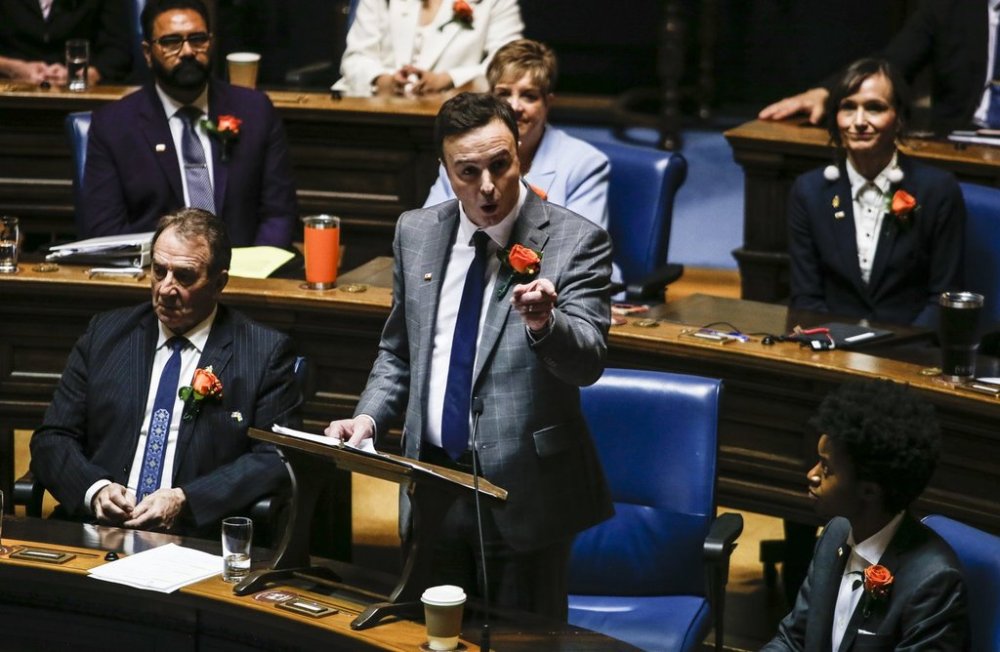Manitoba government says it’s working to get promised tax credit to homeowners
Advertisement
Read this article for free:
or
Already have an account? Log in here »
To continue reading, please subscribe:
Monthly Digital Subscription
$0 for the first 4 weeks*
- Enjoy unlimited reading on winnipegfreepress.com
- Read the E-Edition, our digital replica newspaper
- Access News Break, our award-winning app
- Play interactive puzzles
*No charge for 4 weeks then price increases to the regular rate of $19.95 plus GST every four weeks. Offer available to new and qualified returning subscribers only. Cancel any time.
Monthly Digital Subscription
$4.99/week*
- Enjoy unlimited reading on winnipegfreepress.com
- Read the E-Edition, our digital replica newspaper
- Access News Break, our award-winning app
- Play interactive puzzles
*Billed as $19.95 plus GST every four weeks. Cancel any time.
To continue reading, please subscribe:
Add Free Press access to your Brandon Sun subscription for only an additional
$1 for the first 4 weeks*
*Your next subscription payment will increase by $1.00 and you will be charged $16.99 plus GST for four weeks. After four weeks, your payment will increase to $23.99 plus GST every four weeks.
Read unlimited articles for free today:
or
Already have an account? Log in here »
Hey there, time traveller!
This article was published 20/05/2025 (239 days ago), so information in it may no longer be current.
WINNIPEG – The Manitoba government faced more questions about its property tax reforms Tuesday after some homeowners did not receive a promised $1,500 credit on their annual bill.
Finance Minister Adrien Sala said there was a problem with some homeowners not registering their properties as their primary residence, which is a condition to get the credit. He put part of the blame on municipal governments.
“We know that some municipalities were more effective at communicating with residents than others and in some instances, we are seeing individuals who did not register their residence as their principal residence,” Sala said.

The province is working with municipalities on a solution to get the problem fixed soon, but there was no word on when people might expect to get their money.
Dave Routhier, a Winnipeg homeowner, said he was shocked when he opened his bill. It was not immediately clear that the credit was missing, and he was told to pay $1,300 more than last year.
“We’re blessed that we are able to absorb the impact to our cash flow … but individuals that cannot — lower-income individuals, people on fixed incomes, retirees — it’s a huge hit to them,” Routhier said. Like many Manitobans, Routhier opts to divide his bill into monthly payments.
The Opposition Progressive Conservatives said they have heard from dozens of other homeowners in the same situation.
Routhier said when he inquired about how to get the issue fixed, he was guided to online information that said he could submit for the credit on his income tax return next spring.
Sala said he aims to have things sorted out much more quickly.
“We’re currently in conversation with the City of Winnipeg and other municipalities,” he said.
The issue is the latest flare-up in an ongoing political battle over education property taxes. Unlike some other provinces, Manitoba has a dedicated property tax to help fund schools.
The NDP government, elected in 2023, has eliminated a system implemented by the former Tory government that provided a 50 per cent rebate to residential property owners and an additional $350 credit for people’s primary residence.
In its place, the government introduced a flat $1,500 credit that, unlike the former rebate, does not rise with higher property values and is not available to cottages, apartment buildings and other properties not occupied by the owner as a primary residence.
The NDP has touted the move as a tax savings for most Manitobans, because the credit can eliminate education property taxes for lower-value homes.
But overall, the government estimated it would pay out $148 million less in the initial year. And that figure would rise as annual property taxes increase. The Tories have said it amounts to a tax hike for a large number of people.
Routhier, who has lived in his home since 2010, said he had no idea he was supposed to register his home as a primary residence. Other people may not even realize they are missing out on the credit, he said.
“There’s going to be a certain number of people that may never get this addressed.”
This report by The Canadian Press was first published May 20, 2025.



